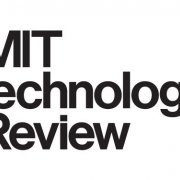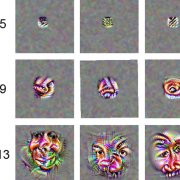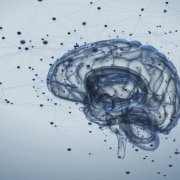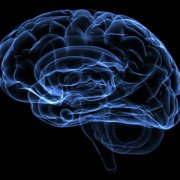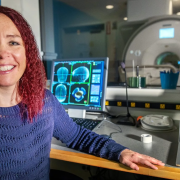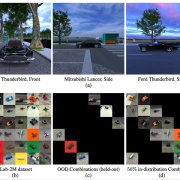April 28, 2022 - 2:15 pm
Prestigious honor society announces more than 250 new members.
Seven MIT faculty members are among more than 250 leaders from academia, the arts, industry, public policy, and research elected to the American Academy of Arts and Sciences, the academy announced Thursday.
One of the nation’s most prestigious honorary societies, the academy is also a leading center for independent policy research. Members contribute to academy publications, as...
April 27, 2022 - 12:00 pm
Excerpt:
"The researchers, led by Nancy Kanwisher and collaborator Josh McDermott, had previously identified a population of neurons in the auditory cortex that respond specifically to music by using functional magnetic resonance imaging (fMRI) on subjects as they listened to a recording of 165 sounds. But they were able to gather much more precise information by directly recording electrical activity in the brains of 15 people via electrodes...
April 25, 2022 - 10:30 am
Dr. Kelsey Allen, MIT PhD '21, awarded the prestigious Glushko Dissertation Prize in cognitive sciences for her PhD thesis entitled “Learning to act with objects, relations and physics."
"The goals of these prizes are to increase the prominence of cognitive science, and encourage students to engage in interdisciplinary efforts to understand minds and intelligent systems. The hope is that the prizes will recognize and honor young researchers...
April 14, 2022 - 1:15 pm
Fellowship funds graduate studies for outstanding immigrants and children of immigrants.
Julia Mongo | Office of Distinguished Fellowships
MIT graduate student Fernanda De La Torre, alumna Trang Luu ’18, SM ’20, and senior Syamantak Payra are recipients of the 2022 Paul and Daisy Soros Fellowships for New Americans.
De La Torre, Luu, and Payra are among 30 New Americans selected from a pool of over 1,800 applicants. The fellowship honors...
April 6, 2022 - 4:15 pm
When artificial intelligence is tasked with visually identifying objects and faces, it assigns specific components of its network to face recognition — just like the human brain.
Jennifer Michalowski | McGovern Institute for Brain Research
The human brain seems to care a lot about faces. It’s dedicated a specific area to identifying them, and the neurons there are so good at their job that most of us can readily recognize thousands of...
April 5, 2022 - 4:30 pm
Dr. Demis Hassabis, Founder and CEO of DeepMind
The Spring 2022 Brains, Minds, and Machines (BMM) Seminar Series will be hosted in a hybrid format. Please see the information included below regarding attending the event either in-person or watch via live stream.
Abstract: The past decade has seen incredible advances in the field of Artificial...
Abstract: The past decade has seen incredible advances in the field of Artificial...
March 29, 2022 - 4:15 pm
In a new study, intracranial electrodes helped reveal the cells in our brains and the neurological mechanisms responsible for memory creation.
By Conor Feehly
The successful formation of memories is an essential function in humans. Our memories provide us with data on past events and experiences which mandate how we behave in the here and now. Memories are also central to the formation of a concept of self, as the autobiographical nature of our...
March 22, 2022 - 2:00 pm
Virtual (Zoom)
Alexander Borst, Max-Planck-Institute of Neurobiology, Martinsried, Germany
This talk will be fully remote via a Zoom Webinar.
Detecting the direction of image motion is important for visual navigation, predator avoidance and prey capture, and thus essential for the survival of all animals that have eyes. However, the direction of motion is not explicitly represented at...
Detecting the direction of image motion is important for visual navigation, predator avoidance and prey capture, and thus essential for the survival of all animals that have eyes. However, the direction of motion is not explicitly represented at...
March 7, 2022 - 2:45 pm
Study identifies brain cells that form boundaries between discrete events
Researchers have identified two types of cells in our brains that are involved in organizing discrete memories based on when they occurred. This finding improves our understanding of how the human brain forms memories and could have implications in memory disorders such as Alzheimer's disease. The study was supported by the National Institutes of Health's Brain Research...
March 2, 2022 - 5:15 pm
Researchers find similarities between how some computer-vision systems process images and how humans see out of the corners of our eyes.
Adam Zewe | MIT News Office
Perhaps computer vision and human vision have more in common than meets the eye?
Research from MIT suggests that a certain type of robust computer-vision model perceives visual representations similarly to the way humans do using peripheral vision. These models, known as...
February 25, 2022 - 12:00 pm
by Margaret Osborne
Excerpt: "Researchers from the Massachusetts Institute of Technology have discovered that a specific set of neurons located in the auditory cortex in the brain respond to singing but not other sounds like speaking or instrumental music.
“This work suggests there’s a distinction in the brain between instrumental music and vocal music,” says study author Sam Norman-Haignere, who was formerly an MIT researcher and is now a...
February 23, 2022 - 10:15 am
New data shows that brain regions in infants just a few months old are specialized for faces, bodies, or scenes.
By Anne Trafton
Within the visual cortex of the adult brain, as MIT neuroscientist Nancy Kanwisher discovered years ago, a small region is specialized to respond to faces, while nearby regions show strong preferences for bodies or for scenes such as landscapes. It’s long been thought that it takes years of visual experience for...
February 22, 2022 - 4:00 pm
Prof. Petros Koumoutsakos, Harvard University
The Spring 2022 Brains, Minds, and Machines (BMM) Seminar Series will be hosted in a hybrid format. Please see the information included below regarding attending the event either in-person or remotely via Zoom connection
Please note, MIT is requiring that all attendees, including MIT COVIDpass...
Please note, MIT is requiring that all attendees, including MIT COVIDpass...
February 22, 2022 - 10:15 am
MIT neuroscientists have identified a population of neurons in the human brain that respond to singing but not other types of music.
Anne Trafton | MIT News Office
For the first time, MIT neuroscientists have identified a population of neurons in the human brain that lights up when we hear singing, but not other types of music.
These neurons, found in the auditory cortex, appear to respond to the specific combination of voice and music, but not...
February 21, 2022 - 9:45 am
A model’s ability to generalize is influenced by both the diversity of the data and the way the model is trained, researchers report.
Adam Zewe | MIT News Office
Artificial intelligence systems may be able to complete tasks quickly, but that doesn’t mean they always do so fairly. If the datasets used to train machine-learning models contain biased data, it is likely the system could exhibit that same bias when it makes decisions in practice....


